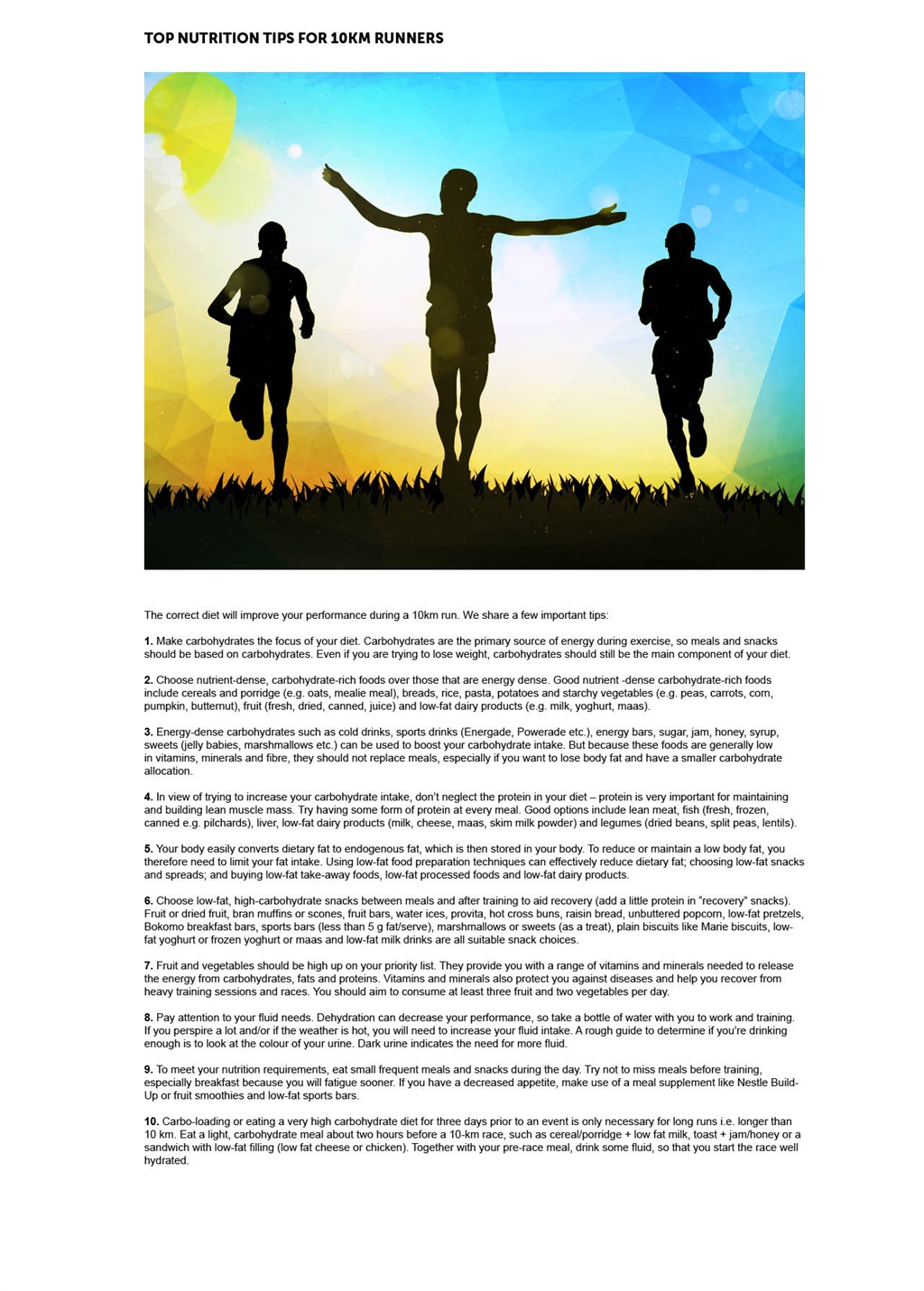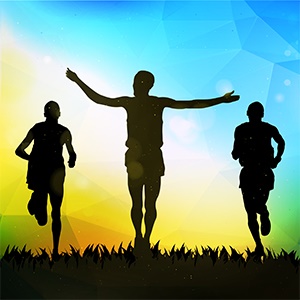

The right diet will improve your performance during a 10km run.
1. Make carbs the focus of your diet. Carbs are the primary source of energy during exercise, so meals and snacks should be based on carb-loading. Even if you’re trying to lose weight, carbohydrates should still be the main component of your diet.
2. Choose nutrient-dense, carbohydrate-rich foods over those that are energy-dense. Good choices include cereal and porridge (oats, mealie meal), breads, rice, pasta, potatoes and starchy vegetables (peas, carrots, corn, pumpkin, butternut), fruit (fresh, dried, canned, juice) and low-fat dairy products (milk, yoghurt, maas).
3. Energy-dense carbs like soft drinks, sports drinks, energy bars, sugar, jam, honey, syrup and sweets can all be used to boost your carbohydrate intake. But because these foods are generally low in vitamins, minerals and fibre, they shouldn't replace meals, especially if you want to lose body fat and have a smaller carbohydrate allocation.
4. Don’t neglect the protein in your diet – protein is very important for maintaining and building lean muscle mass. Try having some form of protein at every meal. Good options include lean meat, fish (fresh, frozen, canned e.g. pilchards), liver, low-fat dairy (milk, cheese, maas, skim milk powder) and legumes (dried beans, split peas, lentils).
5. Your body easily converts dietary fat to endogenous fat, which is then stored in your body. To reduce or maintain a low body fat, you need to limit your fat intake. Choose low-fat snacks and spreads, buying low-fat takeaway foods, low-fat processed foods and low-fat dairy products.
6. Choose low-fat, high-carbohydrate snacks between meals and after training to help recovery (add a little protein in “recovery” snacks). Fruit or dried fruit, bran muffins, fruit bars, raisin bread, unbuttered popcorn, low-fat pretzels, sports bars, marshmallows or sweets (as a treat), plain biscuits, low-fat yoghurt or maas are all good options.
7. Fruit and vegetables should be high on your priority list. They give you a range of vitamins and minerals needed to release the energy from carbohydrates, fats and proteins. Vitamins and minerals also protect you against diseases and help you recover from heavy training sessions and races. Aim for at least three fruit and two vegetables per day.
8. Pay attention to your fluid needs. Dehydration can decrease your performance, so take a bottle of water with you to work and training. If you perspire a lot and/or if it's hot out, you need to increase your fluid intake. A rough guide to determine if you’re drinking enough is to look at the colour of your urine. Dark urine means you need more fluid.
9. To meet your nutrition requirements, eat small frequent meals and snacks during the day. Try not to miss meals before training, especially breakfast because you will get tired sooner. If you have a decreased appetite, use a meal supplement.
10. Carb-loading for a few days before your race is only necessary for long runs i.e. longer than 10km. Eat a light meal about two hours before a 10km race. Go for cereal or porridge and low-fat milk, toast with jam or honey, or a sandwich with low-fat filling. Together with your pre-race meal, have some fluids so that you start the race well-hydrated.





 Publications
Publications
 Partners
Partners










